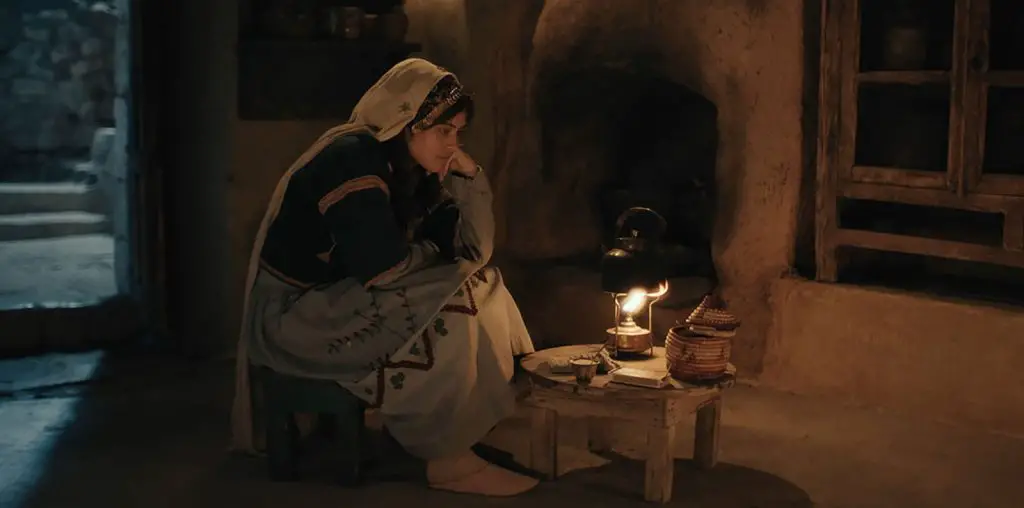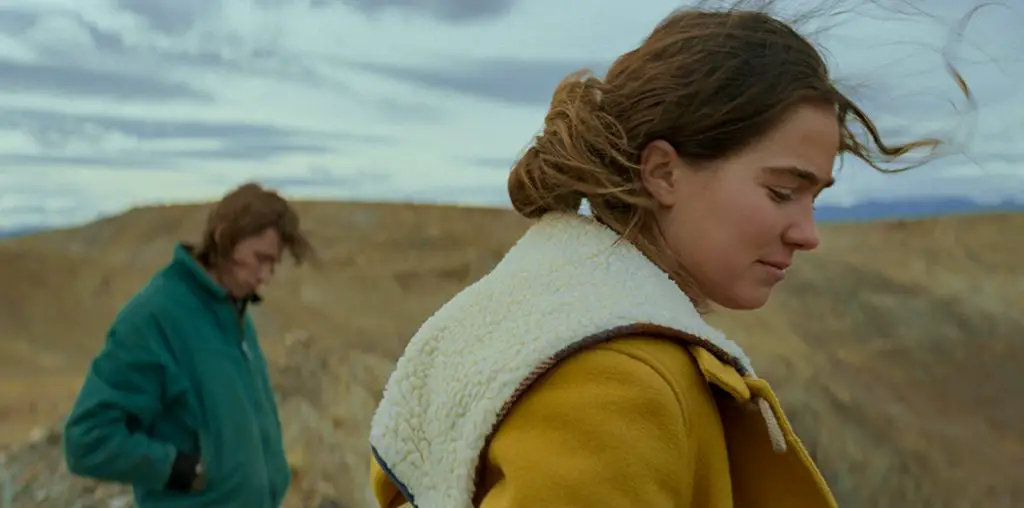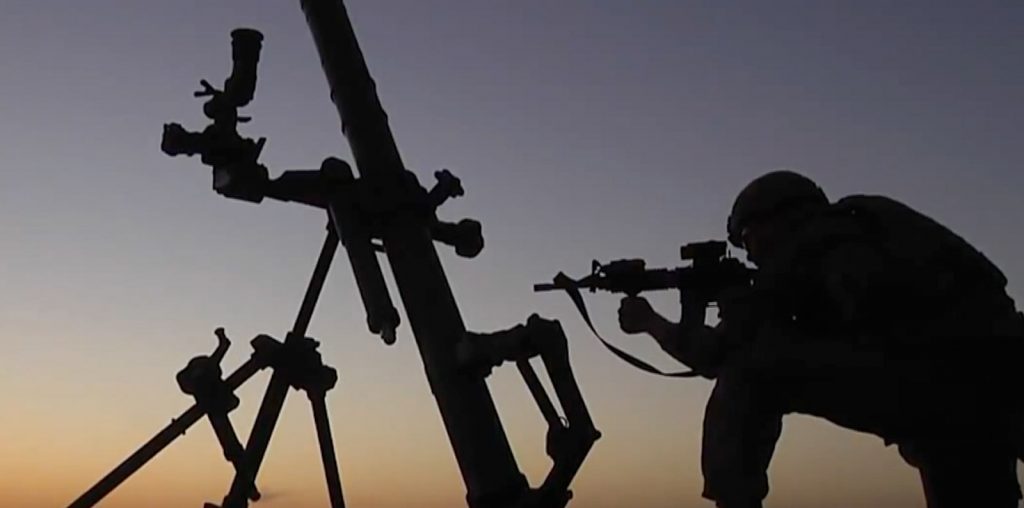
SFFILM FESTIVAL 2022 REVIEW! The Devil’s Drivers documents the work and lives of Beduin cousins who dodge the Israeli Defense Force to bring undocumented Palestinian workers through the Negev desert to take temporary jobs in Israel. The film is written and directed by Mohammed Abugeth and Daniel Carsenty. They met in Germany and spent years traveling to the West Bank to film the struggles of Palestinians pursuing any means necessary to feed families and keep their culture intact.
The film begins in 2012, with Hamouda and his cousin Ismail being paid by would-be laborers to drive them out into the desert across the border. Army patrols are vigilant and chase them down, often arresting the smugglers and confiscating their vehicles. The IDF is strict on the border because of terrorist attacks by Palestinians. Despite the fact that they are few and far between, the impact in terms of loss of life and the optics of the attacks drives them to keep the border closed.
Israel also maintains tight control of the border through a Palestinian worker approval process that allows them to track who crosses into Israel. The work permit approvals can be hard to come by. Mahouda’s town and family land are uncomfortably close to the Israeli settlements, but the Palestinians are denied even basic services like running water. The cars they drive are specially modified and maintained by sympathetic local mechanics to withstand the rough roads and sometimes off-road tracks the drivers must take to avoid capture. During the years of filming, Ismail even decides to go back to being a shepherd to make sure he’s around for his children. An older man named Ali, also a shepherd, is caught acting as a lookout for the drivers from his high vantage points with his flock. The IDF punishes him by having his home and neighbor’s homes bulldozed over, exposing them to the harsh elements.
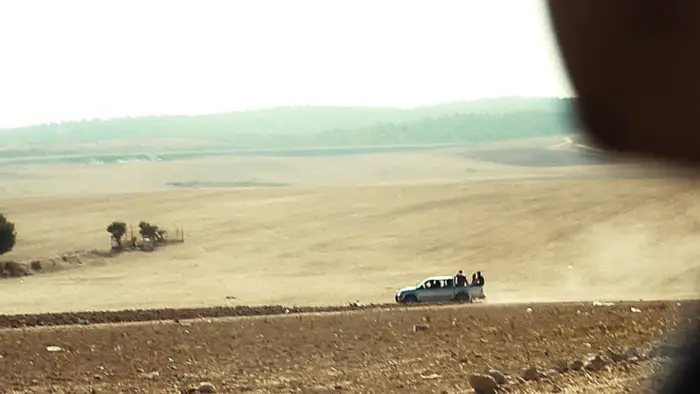
“…who dodge the Israeli Defense Force to bring undocumented Palestinian workers…to take temporary jobs in Israel.”
Abugeth and Carsenty shot The Devil’s Drivers over eight years, and the footage is spectacular. Despite the guerilla filmmaking “run-and-gun” process, the cinematography is amazing: beautiful desert vistas sprawled out in crystal clear wide shots. The film is a close look at the harshness of life for the Palestinians and ends on the grim note that without a political solution, they and their way of life will not continue.
Spending time with Ali, Mahmoud, and Ismail is revelatory. They are fiercely devoted to their families and their people and willing to risk it all to make a living bringing workers across the border to Israel. The situation also reflects a similar dilemma faced in the United States. We have people willing to risk their lives on deadly desert crossings into the country to take low-paying jobs because there’s a demand for that work. If there were no one paying undocumented people to work, they would not cross. Yet, in neither case are the sanctions for hiring them financially/criminally threat enough to deter the practice.
That The Devil’s Drivers is from the Palestinian perspective is fresh and allows the viewer to live the dangers and challenges of daily life in the West Bank. This will cause some controversy. There’s a tendency toward polarization in the media, where any call for sympathy toward Palestinians is interpreted as being anti-semitic. This should not be an either/or situation. One can work towards a solution to allow both cultures to continue in peace and enjoy lives of safe harmony according to their own ways. But, what can a simple film critic know when Yitzhak Rabin was shot for saying the same thing?
The Devil’s Drivers screened at the 2021 Toronto International Film Festival and the 2022 SFFilm Festival.
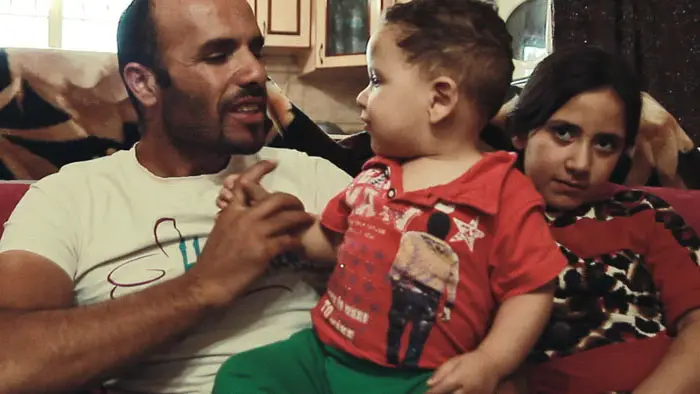
"…beautiful desert vistas sprawled out in crystal clear wide shots."
